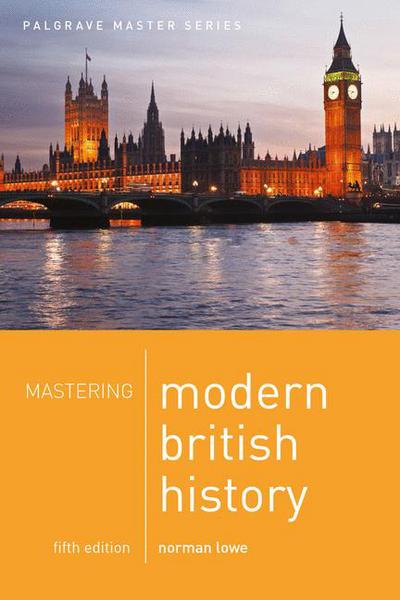


Are you sure you want to reset the form?
Your mail has been sent successfully
Are you sure you want to remove the alert?
Your session is about to expire! You will be signed out in
Do you wish to stay signed in?
Immigration and its problems
Study the sources and then answer the questions that follow.
Source A:
| Speech by Enoch Powell on 20 April 1968 – known as ‘the rivers of blood speech’. ‘We must be mad, literally mad as a nation, to be permitting the annual inflow of 50,000 dependents. It’s like watching a nation busily heaping up its own funeral pyre. As I look ahead I am filled with foreboding; like the Roman I seem to see the River Tiber foaming with much blood. That tragic and intractable phenomenon which we watch with horror on the other side of the Atlantic but which there is interwoven with the history and existence of the States itself, is coming upon us here by our own volition and our own neglect. In numerical terms it will be of American proportions long before the end of the century. Only resolute and urgent action will avert it even now. To see and not to speak, would be the great betrayal.’ Source: quoted in D. Sandbrook, White Heat, Little, Brown, 2006. |
Source B:
| Dominic Sandbrook writes about what happened after Powell’s speech. In Birmingham Powell’s speech met with enthusiastic applause. Elsewhere the reaction was very different. Quintin Hogg, the Tories’ spokesman on home affairs,....decided that Powell had to go. ‘Enoch’s gone mad and hates the blacks’, observed Iain Macleod. Many thought he had gone out of his way to stir up racial antagonism. Heath had no choice and told Powell that he had been sacked [from the Shadow Cabinet]. Heath released a statement explaining that he thought the speech ‘racialist in tone and liable to exacerbate racial tensions’. Most of the newspapers agreed with him. Under the headline ‘An Evil Speech’, The Times called Powell’s words ‘racialist’, ‘disgraceful’ and ‘shameful’. It was ‘calculated to inflame hatred between the races’, and was ‘the first time a serious British politician [had] appealed to racial hatred in this direct way’. .......Barbara Castle thought that race relations ‘would never be the same again ..... I believe he has helped to make a race war, not only in Britain but perhaps in the world, inevitable’. Source: D. Sandbrook, White Heat, pp. 642-3. |
Source C:
| Different reactions to the Powell speech. Away from the Commons and the liberal press, Powell’s words met with firm approval. The News of the World predicted that ‘most people in the country will agree with him, and concluded its report with the words: WE CAN TAKE NO MORE COLOURED PEOPLE. TO DO SO, AS MR POWELL SAYS, IS MADNESS.....Opinion polls make it clear that Powell enjoyed enormous support in the country at large. At the end of April a Gallup Poll found that 74 per cent agreed with what he had said. ...On 23 April more than a thousand dockers converged on the Palace of Westminster carrying placards that read ‘Don’t knock Enoch’ and ‘Back Britain, Not Black Britain’. To the relief of hundreds of thousands of new British citizens, Enoch Powell’s vision of ‘the River Tiber foaming with much blood’ never became a reality. It is certainly true that racial violence appeared to be on the rise in the late sixties, but this was probably a reflection of the cultural gloom and economic turmoil of the day rather than a reaction to Powell’s rhetoric itself. Source: D.Sandbrook, White Heat, pp. 643-4, 646. |
Source D
| David Childs explains the background to Powell’s speech Powell’s speech must be seen against the background of what was happening elsewhere. Immigration had once again flared up as an issue, following events in Kenya. Thousands of Asians in Kenya were seeking asylum in Britain. Parts of the press stirred up fears of chaos in Britain if the immigration from Africa continued. ....In the three months ending in January 1968, 7,000 had arrived. In the first two months of 1968, 13,000 arrived. The United States suffered from an unusual number of riots in black areas of Northern cities between 1964 and 1969, which led to President Johnson setting up a Commission on Civil Disorders. On March 1st 1968 the Race Relations Bill became law. It restricted automatic entry in the future to those citizens of the United Kingdom and the colonies who had partial ties with Britain. In practice this meant, almost exclusively, white citizens whose forefathers were from Britain. ...The government attempted to take positive action to improve the lives of the immigrants within Britain by the Race Relations Acts of 1965 and 1968. They were important historical steps. For the first time in British history, the government intervened, through legislation, to prevent racial discrimination. By establishing the Race Relations Commission in the 1968 Act, it attempted to promote the cause of racial harmony. Source: D Childs, Britain since 1939, Macmillan, 1995, pp.159-61. |
Using the evidence of the sources and your own knowledge, answer the following questions:
